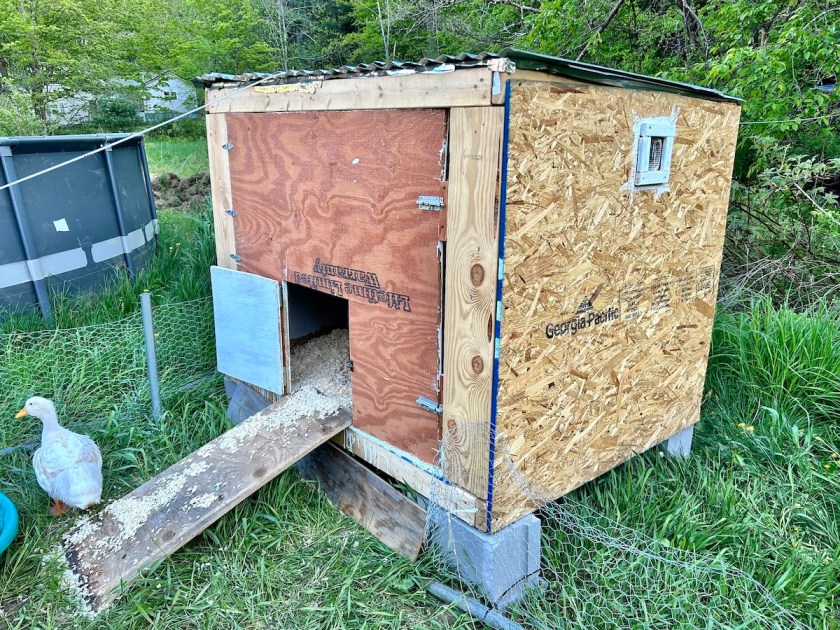Here I am, waiting to go in for a pulmonary function test to find out what is wrong with me, IF ANYTHING. I have spent the last several weeks, including seven hours in the emergency room, getting lots and lots of tests — EKGs, x-rays, a CAT scan, and countless blood tests of various kinds — and they have ruled out a major problem with my heart, which is great. I would hate for there to be something wrong with my heart.
I would hate it so much that now I think it’s possible I scared myself into having chest pains and breathing problems, symptoms which led me to believe there’s something wrong with my heart, and/or lungs. Maybe! Or probably not. No, I definitely am having trouble breathing, especially at night. Or some nights. And chest pains, and palpitations. Even the doctor noticed it. Maybe?
Last time I talked to my therapist, I said that I’m always afraid people are going to think I’m just making things up, or exaggerating them to be dramatic, or to get attention. And I’m always afraid that they’re right, that I’m actually doing that. I’ve always been afraid I’m like this.
She asked who told me I’m like this, my parents?
Well, yes.
She asked if, in fact, I did used to make things up to get attention.
Well, no. I was definitely a dramatic, emotional kid, and I cried all the time, and I had weird problems that I couldn’t explain well, but I can’t think of a single time I was actually making anything up. If anything, I kept things to myself, and just silently cried because I didn’t know what to say.
Since that conversation, every time I get the nagging anxiety that I’m just being a drama queen, and I’m wasting everyone’s time, and they could be spending their precious energy and resources saving people who really are sick, I ask myself, “Do I make things up?”
Well, yes.
That’s what I do for a living. I make things up to be dramatic. I exaggerate on purpose, to get attention. That’s what writing is. Yes, even non-fiction essays, which is mostly what I write.
I don’t tell lies. I don’t say anything I think is untrue. But when someone asks that dreaded question about what my creative process looks like, I have to admit that it looks like making things up to be dramatic. It looks like looking around for anything that might be a tiny little ember, and cupping it carefully in my hands and deliberately blowing on it until it’s hot, and then showing everyone how hot it is. Or squinting at every smooth rock I find to see if any of them are the least bit egg-shaped, and then brooding on them as devotedly as I can, hoping something might hatch out. Or searching around in the dead dust until I find a speck that looks like it might be organic, and warming it and watering it, and breathing on it, just in case it’s a seed that’s ready to grow; and if it does grow, you are going to hear about it! If no one ever told you the facts of life, this is how 800 words get born.
But it’s one thing to find and coax into life an idea that you know is already real and true and big and important, something you will have the luxury of returning to again and again over the course of your life. You can write about motherhood or work or education or food, and be perfectly aware that you’re writing what seems truly true at the time, but you’re probably going to shift and change your understanding of it as your life shifts and changes. Only weirdos hold it against you if you change your mind; most people understand it’s normal to grow through different points of view.
But it’s somewhat different when you’re writing about your own life, which is something I do a lot. Hannah Gadsby (who I know is controversial, but just set that aside for a second!) said something on NPR that I’ve never heard anyone admit before.
The interviewer asked, “[D]does writing and performing stories about your life help you to make sense of them?” and Gadsby said:
“Oh, absolutely … but, you know, there’s a danger to it as well because as you tell it and share it, that works as kind of a seal to how you remember something that happened. So that’s why I’m incredibly careful about what I put on stage and how I talk about things, because it will eventually become the way you think and feel about things. And you can play with fire a little bit there.”
This is horribly true.
The other day my daughter told me she calms herself down when she’s upset by going into the woods and talking to herself. I told her this was good and healthy; that there is great power in naming things, and putting what you’re feeling into words, because then they are more yours in some way; they are contained, at least for a time.
But any power, even the power of describing your own life, can be misused. We’ve all seen people taking a popular narrative, complete with its own set of powerful, trendy words, and retrofitting their own past into it and applying emotional pressure to their memories until they fit into this story, whether that’s what really happened or not. People persuade themselves that some lost partner was a blameless, precious, irreplaceable angel; or they persuade themselves that their estranged parents were thoroughly toxic and malevolent monsters. When in fact the truth was (as truth is) perhaps more complex, less of a tidy narrative.
Memory is strange. It’s more malleable than it feels like it ought to be; and at the same time, words do set a seal on it, especially once you share those words with other people. We speak carelessly about the power of words, but maybe not enough about the great power of words to call into life things that simply aren’t true. It’s as if human words, in their fallenness, carry a dormant virus in them, and sometimes, carried on human breath, they enter into our minds and bind and reproduce with our living pasts and begin forming . . . I don’t know, zombie pasts. Things that resemble our lives, but are lumbering along animated by something other than order and truth. I know this can happen. I have seen it happen.
Fear of misrepresenting and retroactively malforming my own life even to myself has made it hard to pray, sometimes. I get into a state where I feel that I can’t trust anything I think, and I can’t bring myself to put anything into words. I also know this isn’t really a desire for truth or objectivity so much as a trap of anxiety, though. What to do?
The other day I was in my garden and felt so glad, so simply and plainly happy to be in the sun, smelling the sweet weeds, hearing the wrens and robins, and tending my little cucumber and squash seedlings, and I wanted to pray and praise God, but I couldn’t find the words. I felt myself headed into a snarl. What do I say? How do I make this right? How do I do it so it’s about the thing and not about me being clever enough to express the thing cleverly?
And I says to myself, I says, En arche en ho logos. I remembered a sentimental little story I heard once of a kid stuck in a tree during a storm, and he’s so scared, he can’t remember his prayers. All he can remember is the alphabet song, so he sings that, and he figures God will take the letters and make them into something good. So that’s what I did.
(That’s what I do for a living.)
I will not be telling my doctor that I sometimes go out into the garden and sing the alphabet song. I hate to think what that might be recorded as a symptom of. But I’m telling you, in case you get into little binds like me: Keep it simple. Jesus is the word. His breath is pure. Give him the nod, and he sorts everything out, and he keeps the zombies away, and makes the cucumbers to grow, and the robins to sing. Next time, won’t you sing with me?

















































































